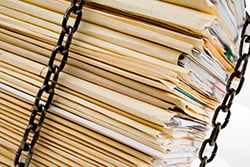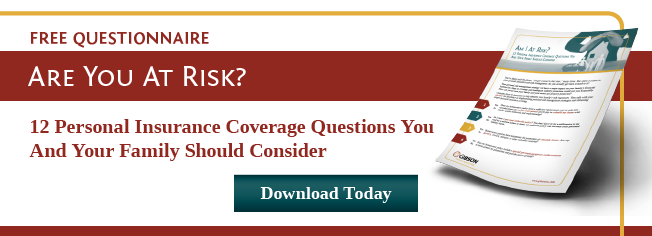 Birth certificates, passports, bank statements, bills, receipts, family health records, insurance paperwork, tax receipts, credit card info – your family accumulates a lot of important documents. What do you do with all of these records? How do you decide what to store and for long? What is the safest storage method for your files?
Birth certificates, passports, bank statements, bills, receipts, family health records, insurance paperwork, tax receipts, credit card info – your family accumulates a lot of important documents. What do you do with all of these records? How do you decide what to store and for long? What is the safest storage method for your files?
Taking time to organize and protect your family’s records is important. Not only can it save you time when you need to find specific documents, but it can also significantly help in case of emergency.
What Should I Keep And For How Long?
Your life is full of paperwork – financial, legal, medical, and more. Which are most important to keep safe? How long do you need to store these files? The International Risk Management Institute provides the following tips for protecting your family and financial records:
- Essential personal and family records such as birth, marriage, and death certificates should be permanently stored, preferably in a safe deposit box. The same rule applies to passports and original Social Security cards. Backup electronic copies via scanning should also be maintained.
- Vital property records, such as real property deeds, burial lot deeds, and motor vehicle titles, should also be permanently stored in a safe deposit box.
- An inventory of household goods and appraisals should be stored in a safe deposit box or electronically with backups. Photographs or videos of valuable personal property should also be maintained and safeguarded.
- Insurance policies should be kept a minimum of 7 years in a home file. A list of all current insurance policies and policy numbers should be maintained in the safe deposit box or electronically with backups in the event of a house fire.
- Auto service records should be retained in a home file for the duration of the ownership of the vehicle. These records may be helpful when selling the vehicle later.
- Copies of canceled checks for non-tax-deductible expenditures should be stored in a home file or electronically for 3 years. Receipts and records of deductible expenses should be stored in a fireproof home file or electronically for 6 years.
- Copies of past tax returns should be kept a minimum of 6 years (15 years is best).
How Should I Store My Records?
Digitally? Safe deposit box at a bank? At home in a file or a safe? Each method of file storage has its advantages and disadvantages.
Digital Storage: With advancements in technology come more options to digitally store files. Before you go paperless, take time to research the digital storage options available. You want to use a method that is easy and convenient, but also one that provides a secure back-up of your documents. Bankrate outlines 5 popular digital storage methods: web-based storage services, USB flash drives, external hard drives, CD-Rs and CD-RWs, and network-attached storage hard drives. To learn more about the pros and cons of these methods, visit Bankrate’s “Storing financial files digitally” article. PC Magazine also provides tips and ideas for going paperless with your family documents.
Safe Deposit Box: Consider an off-site location such as a safe deposit box at a financial institution. A recommended practice would be to keep originals of important documents, or records that would be difficult to replace, in a safe deposit box. Then have copies, or active records and those not as valuable, readily accessible at home in case of emergency. Be sure to put documents in airtight waterproof containers, such as Ziploc bags, before storing in a safe deposit box. Understand the bank’s policies regarding the box: do they insure any of the items, who can access your box if you pass away or are critically injured, when can you access it?
In-Home Files: Keeping files at home may be more convenient than a safe deposit box, but are you properly storing those files to withstand fires, floods, or other damage to your home? Your most important files should be stored in a home safe. Is the safe fire resistant? Water resistant? Safe from burglars? Where will the safe be located? Will you share the key or combination with someone you trust? Consumer Reports outlines best practices in choosing and using a home safe.
What Documents Should You Have Ready For Emergencies?
When disaster strikes you want to be focused on your family’s safety, not worrying about where your insurance policy documents are or other important records. Taking time to put together your important files in an emergency kit can help take away some of the stress and panic. You could use a portable, fire-resistant, waterproof box to store the files. Keep it in an accessible location so you can grab it as you evacuate your home or take cover in a safe place. The Federal Emergency Management Agency provides a detailed guide to creating your “Emergency Financial First Aid Kit.”
Additional Resources
For more information and tips about storing your important financial and family records, visit the following sites:




